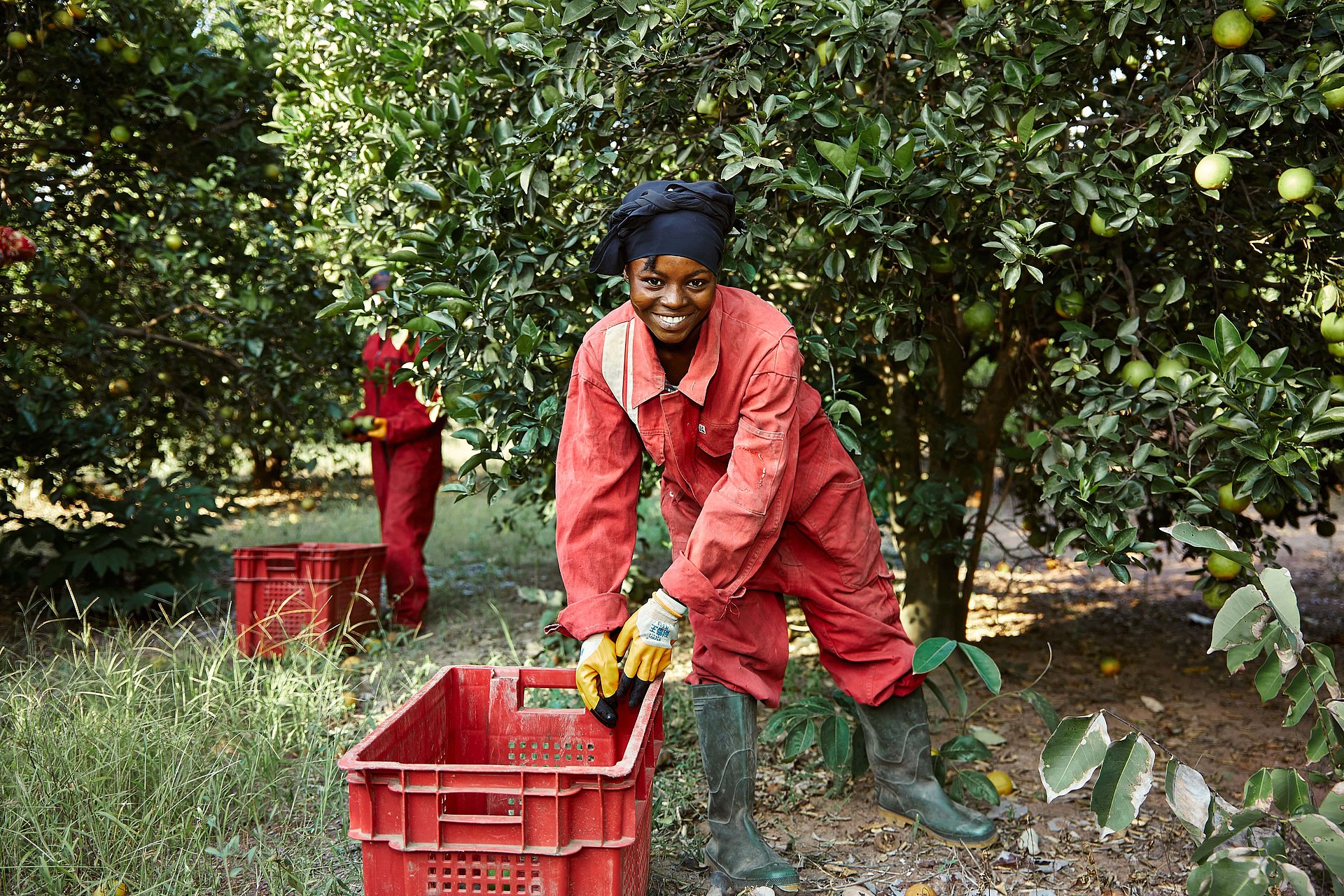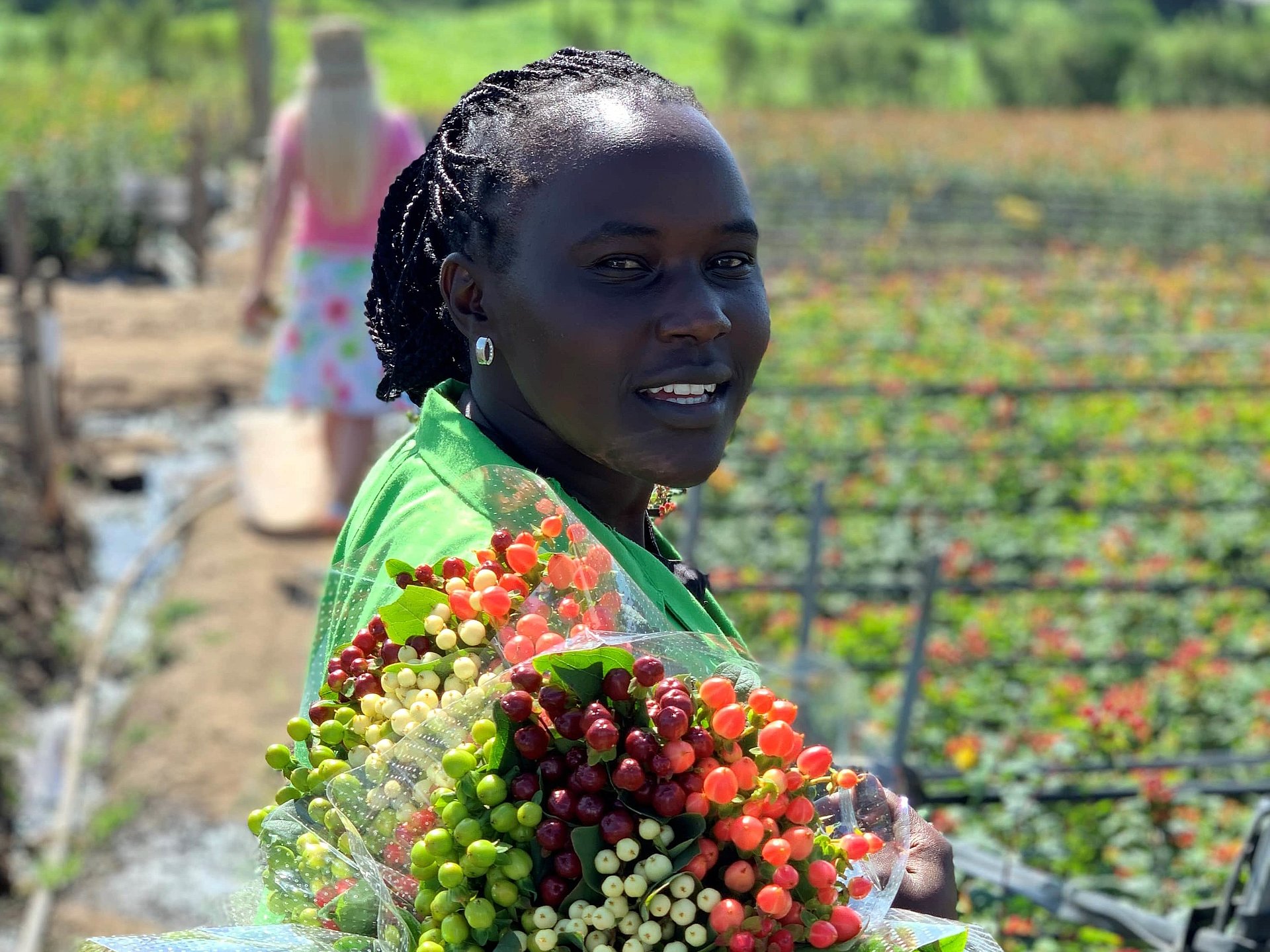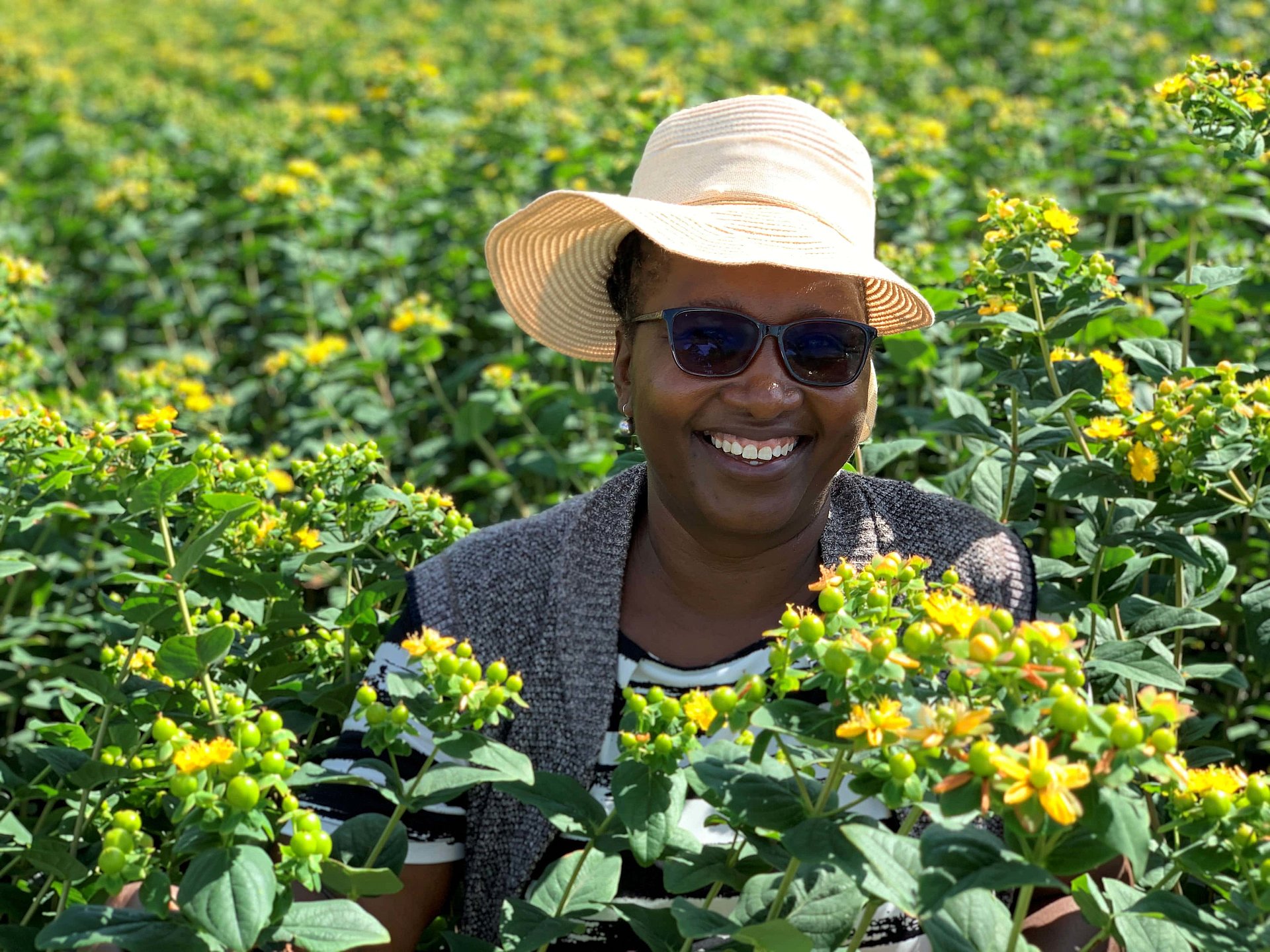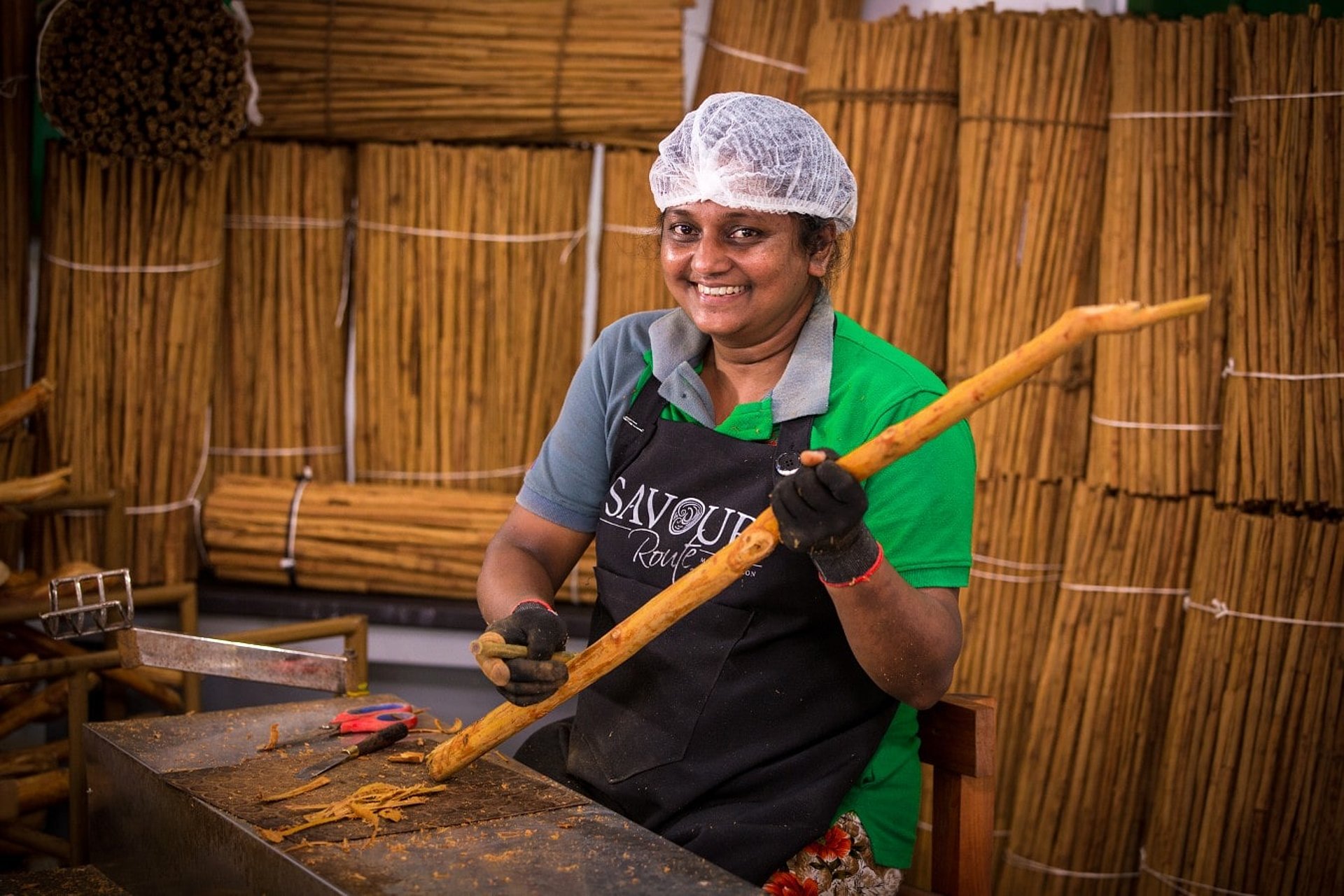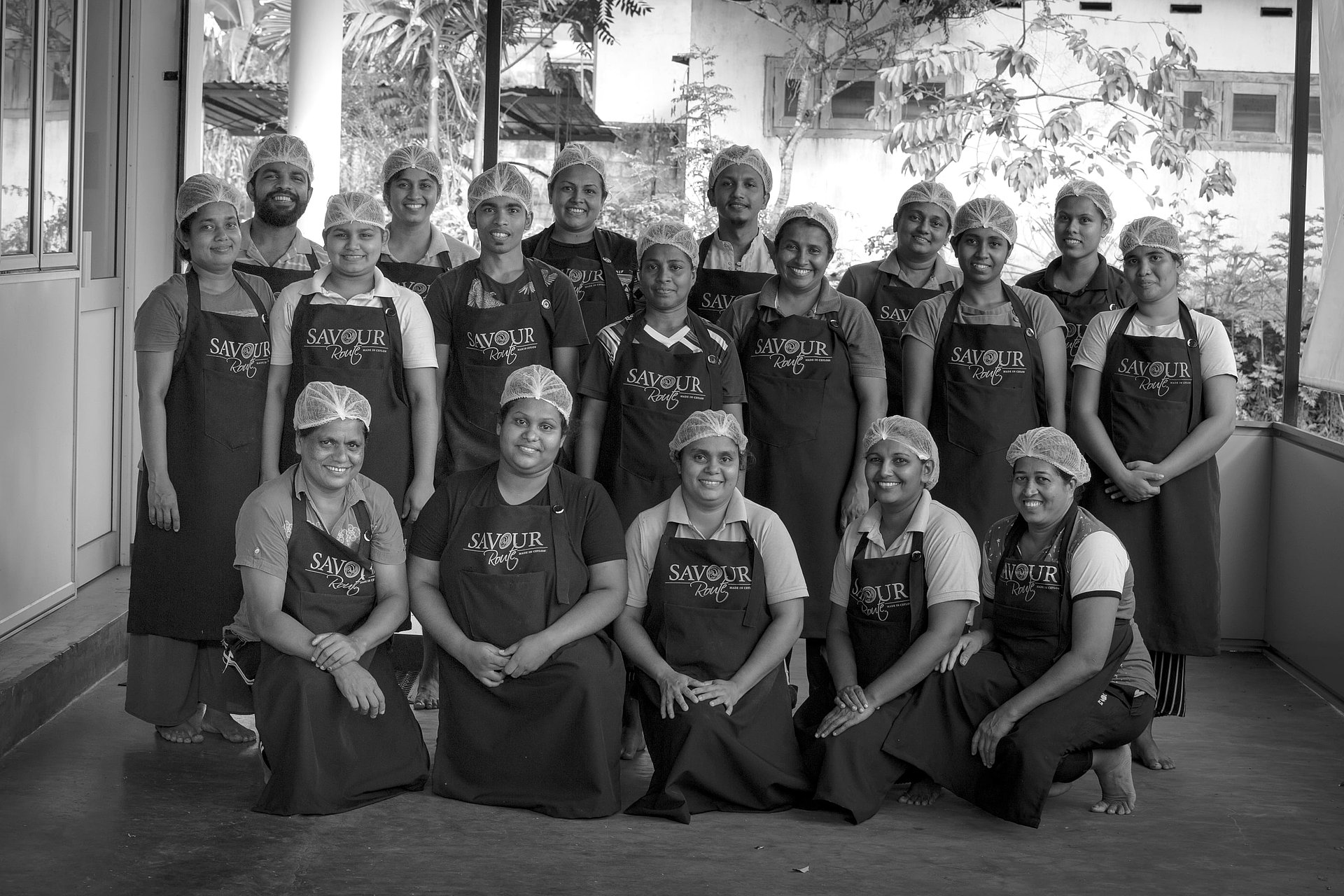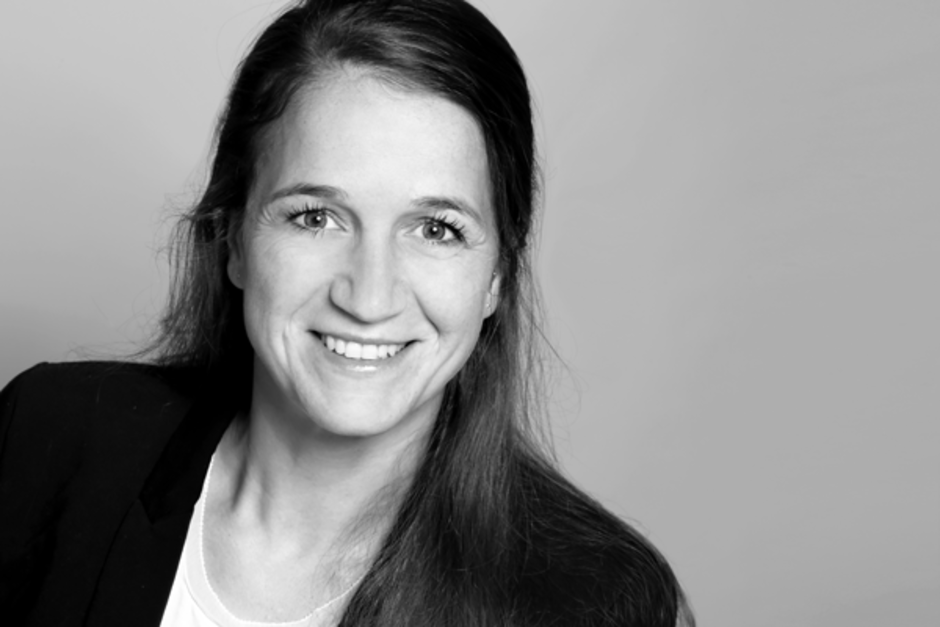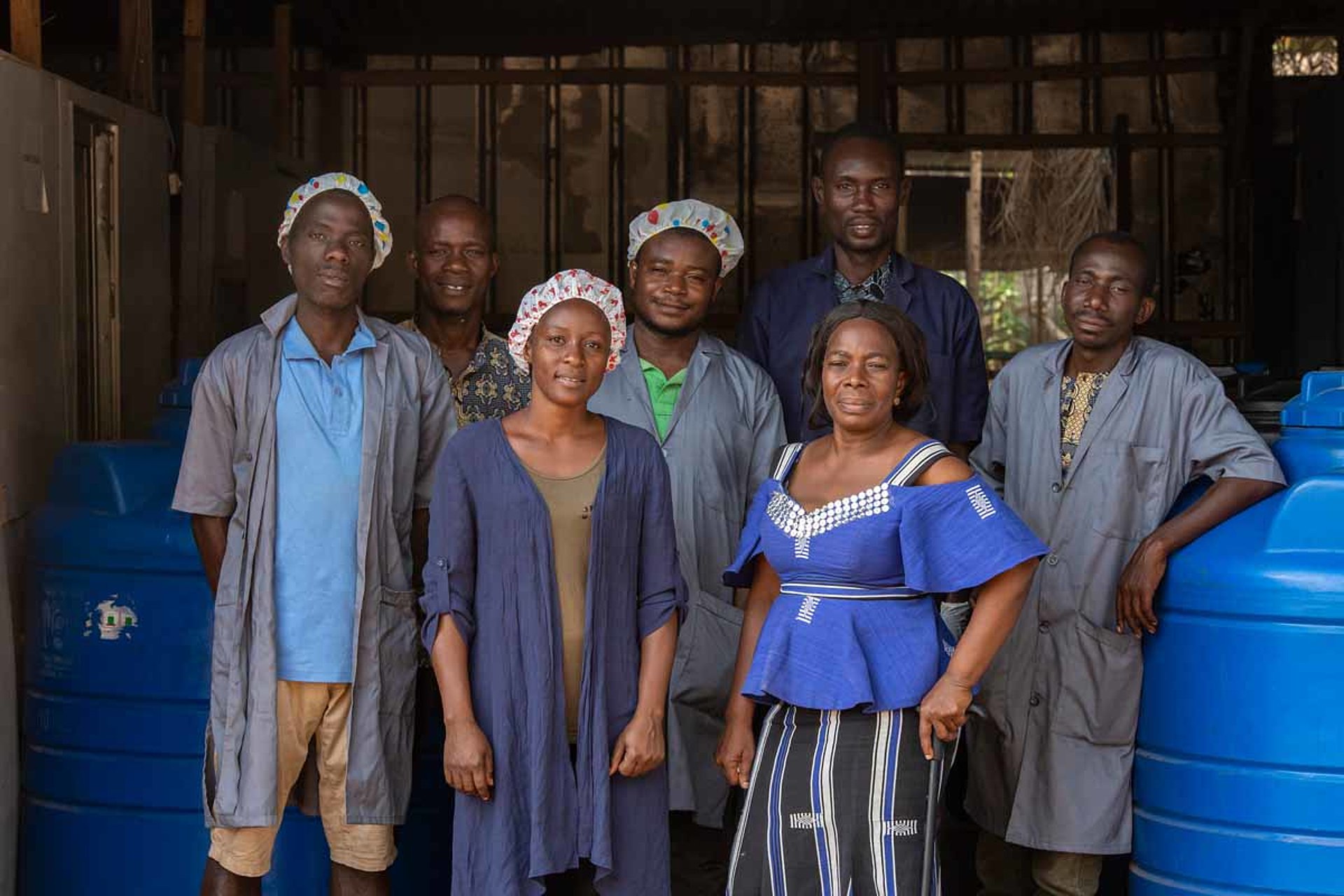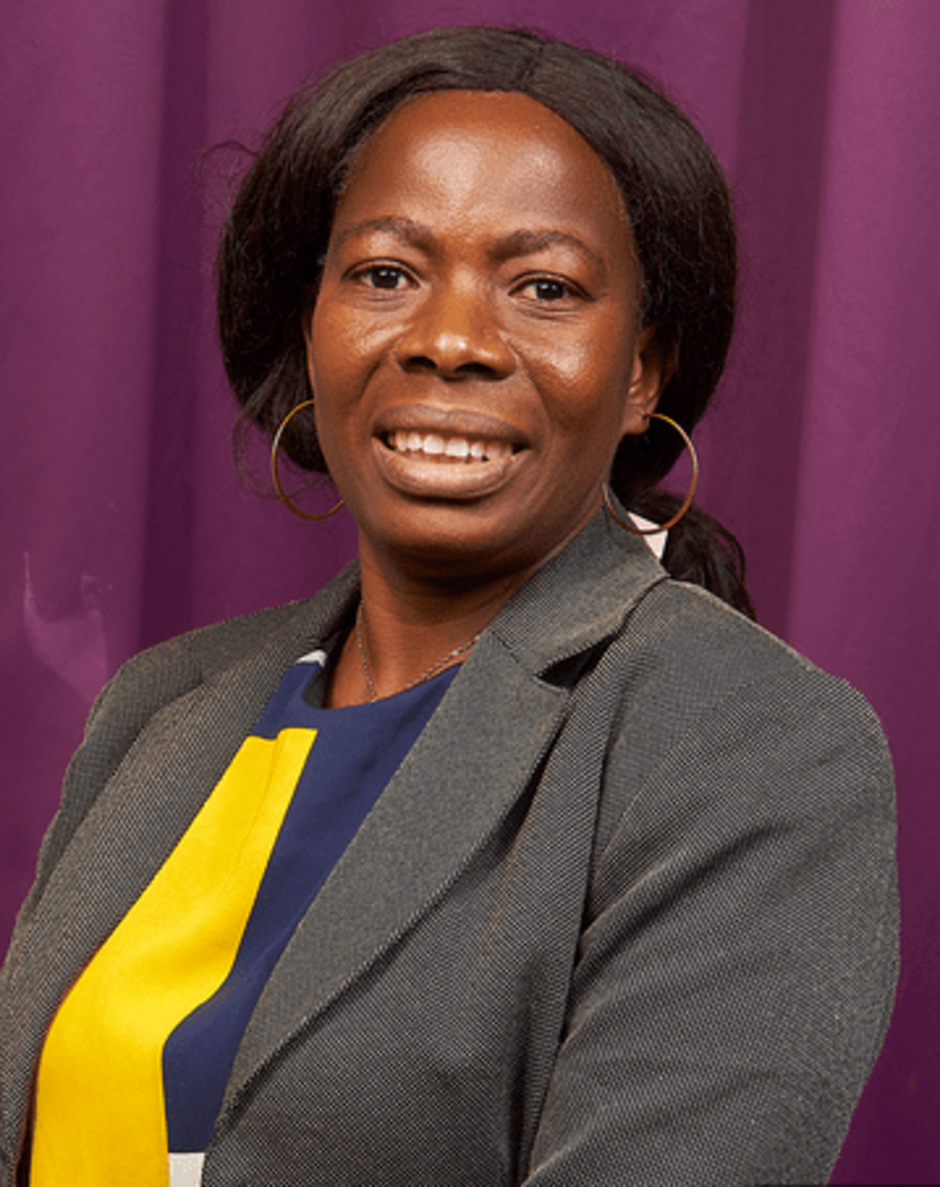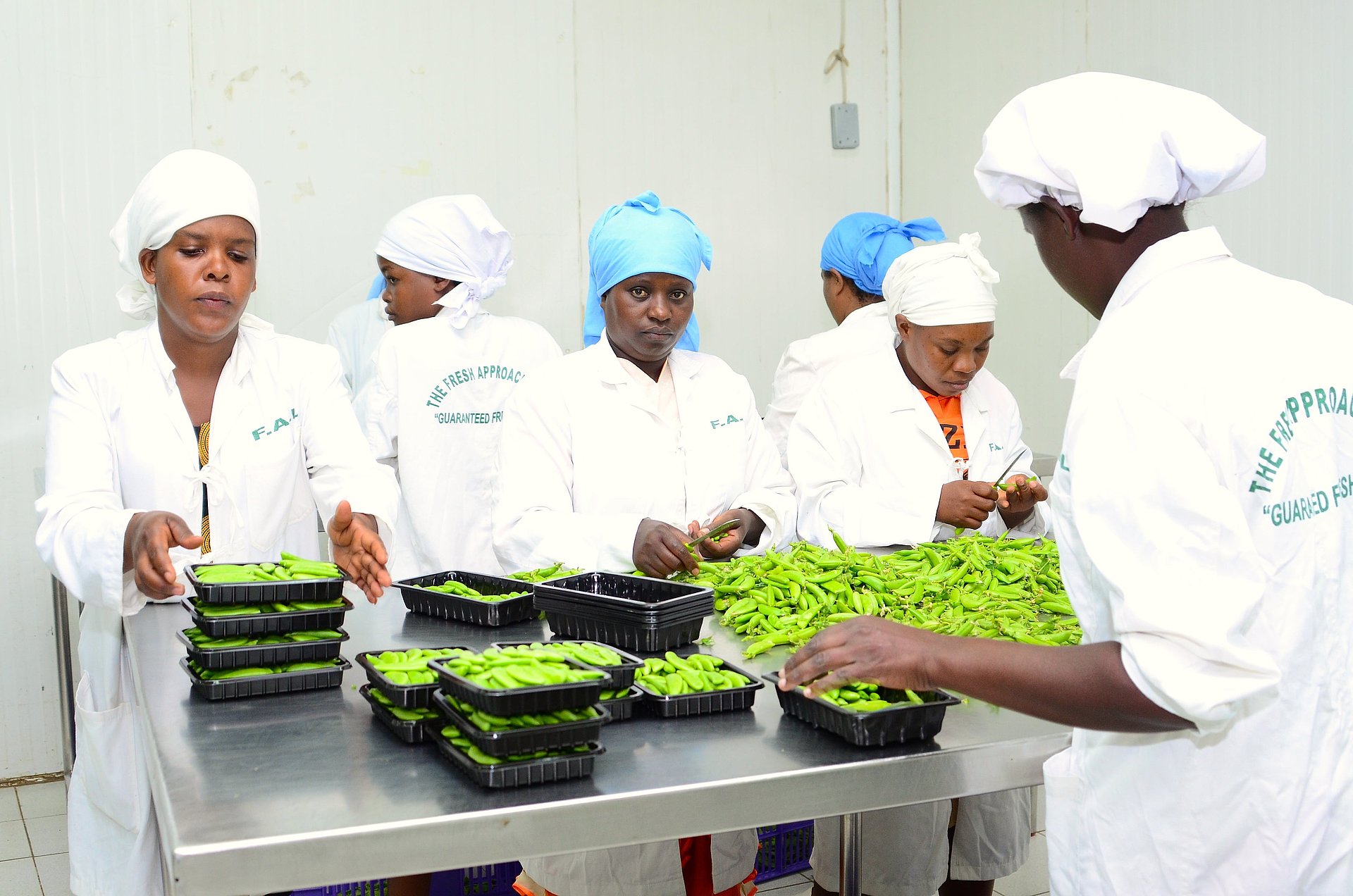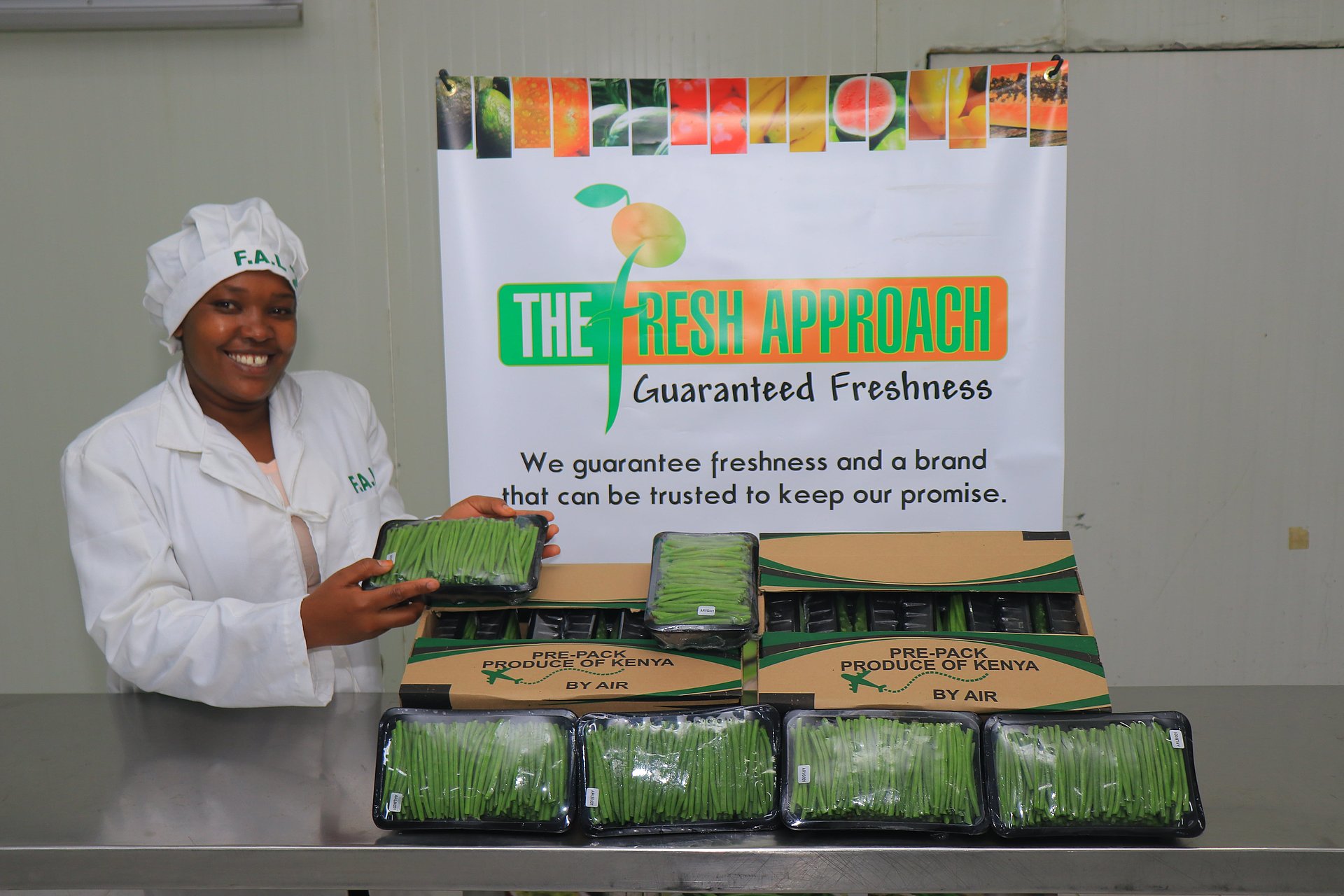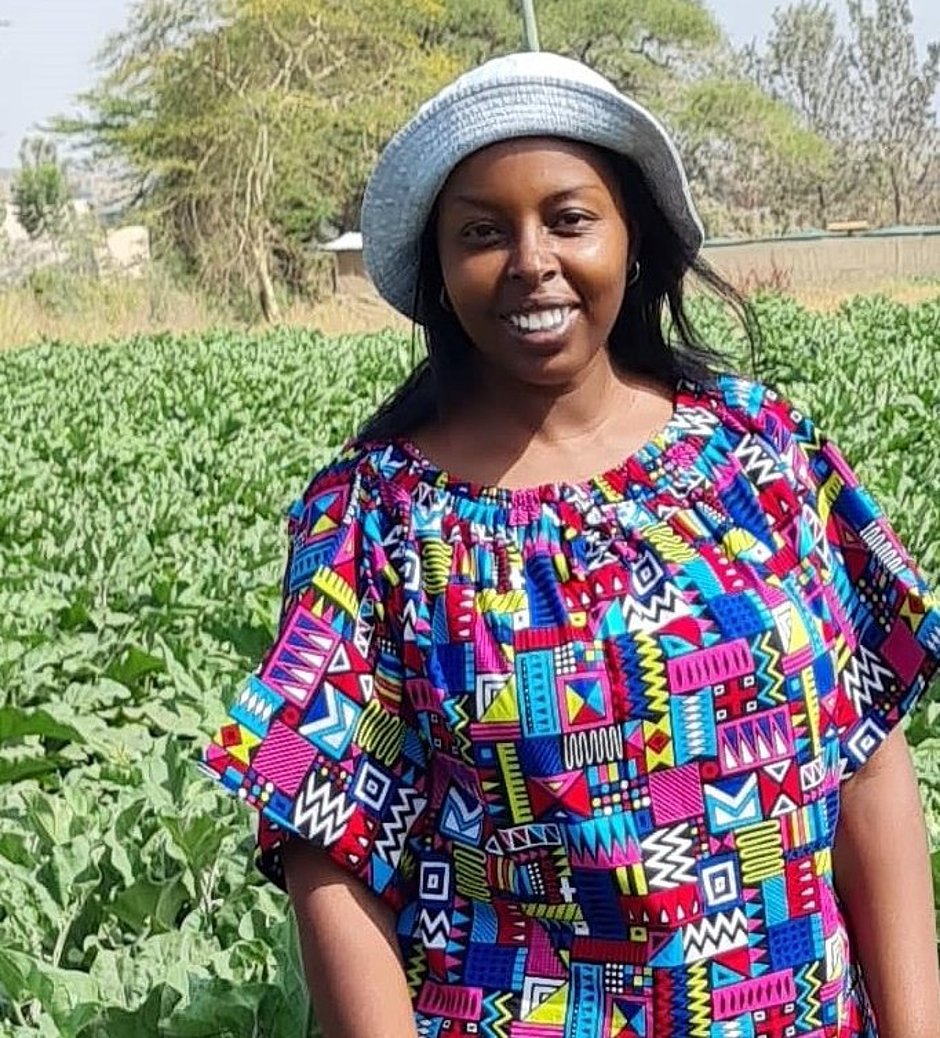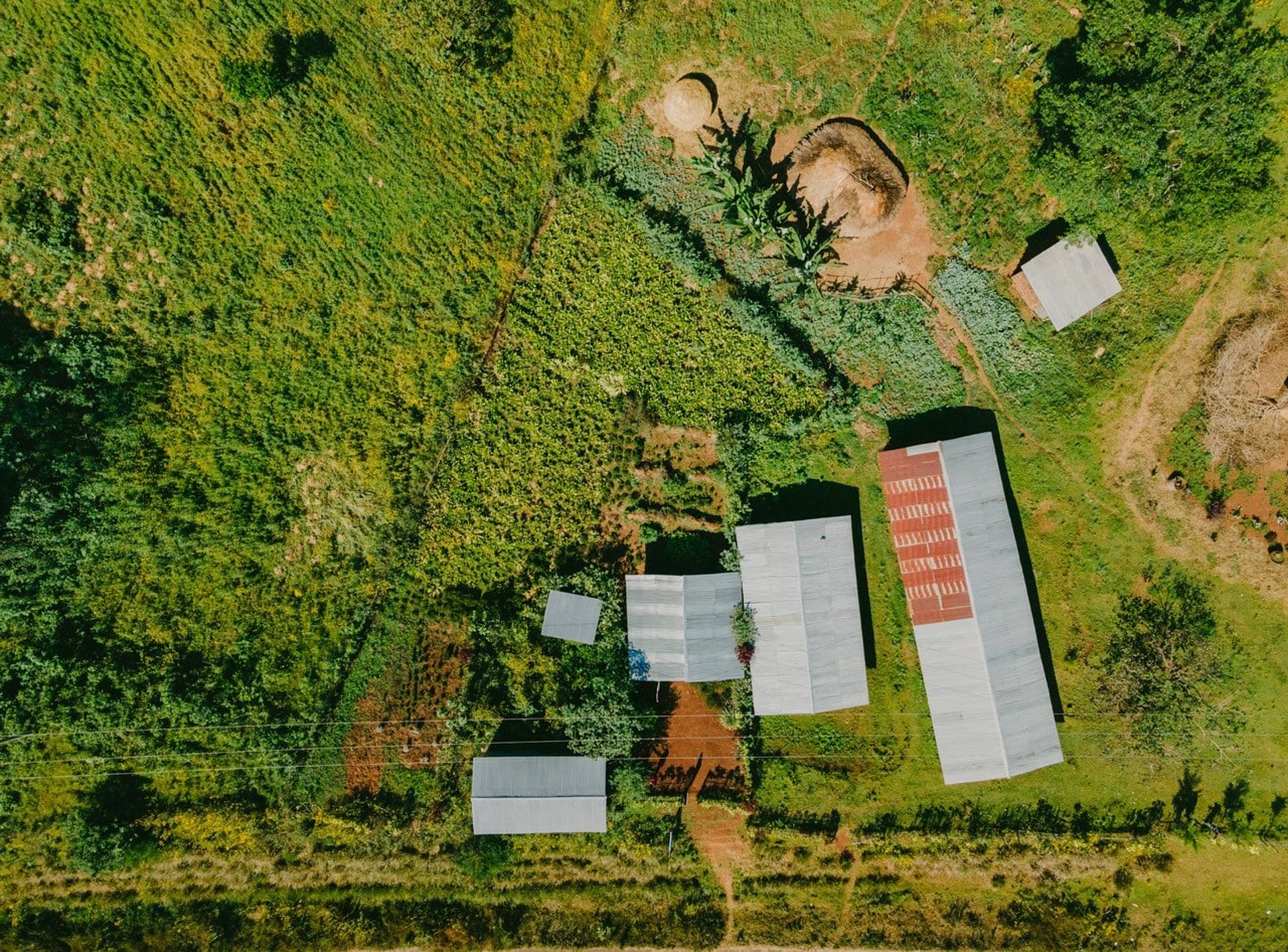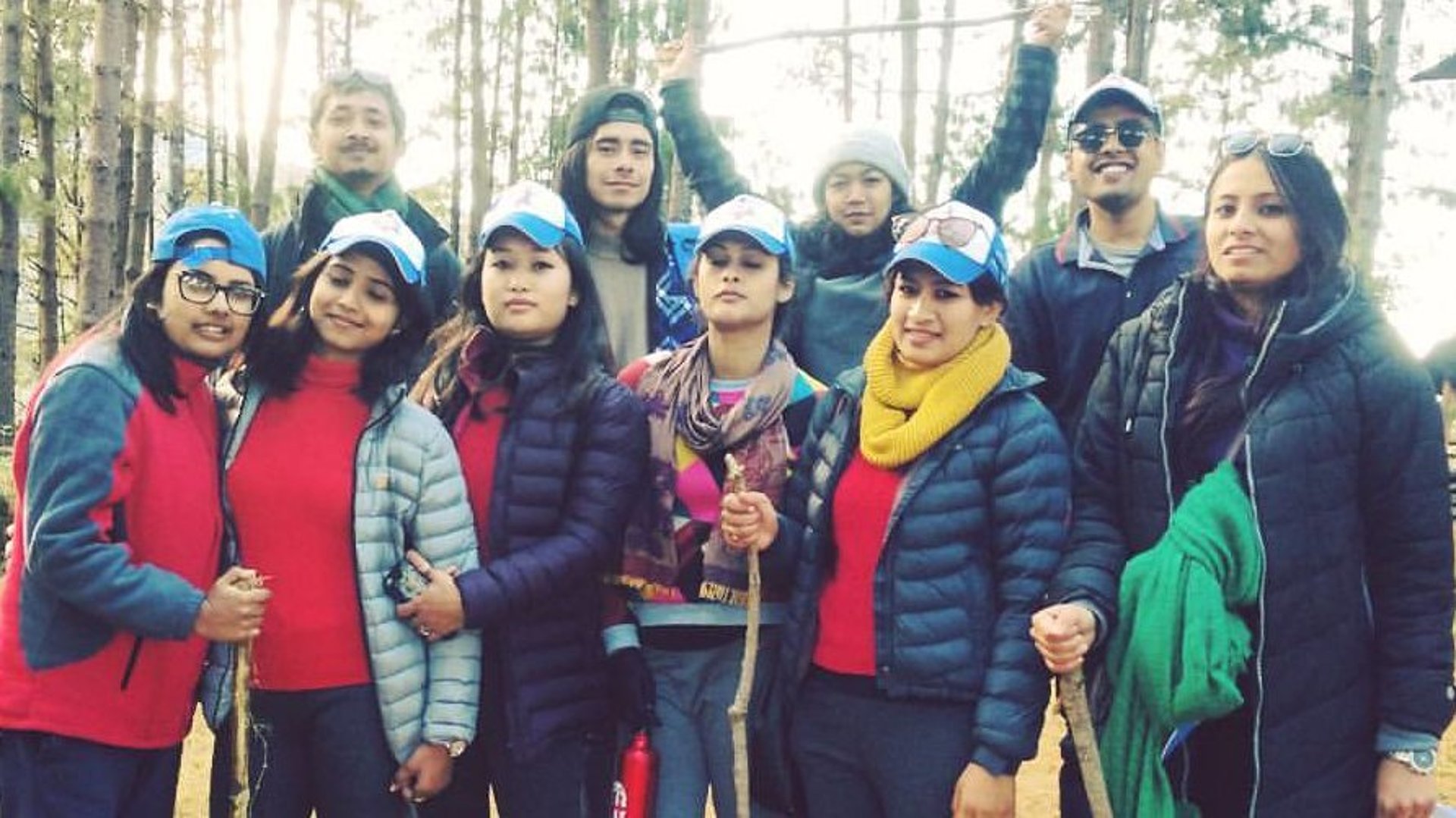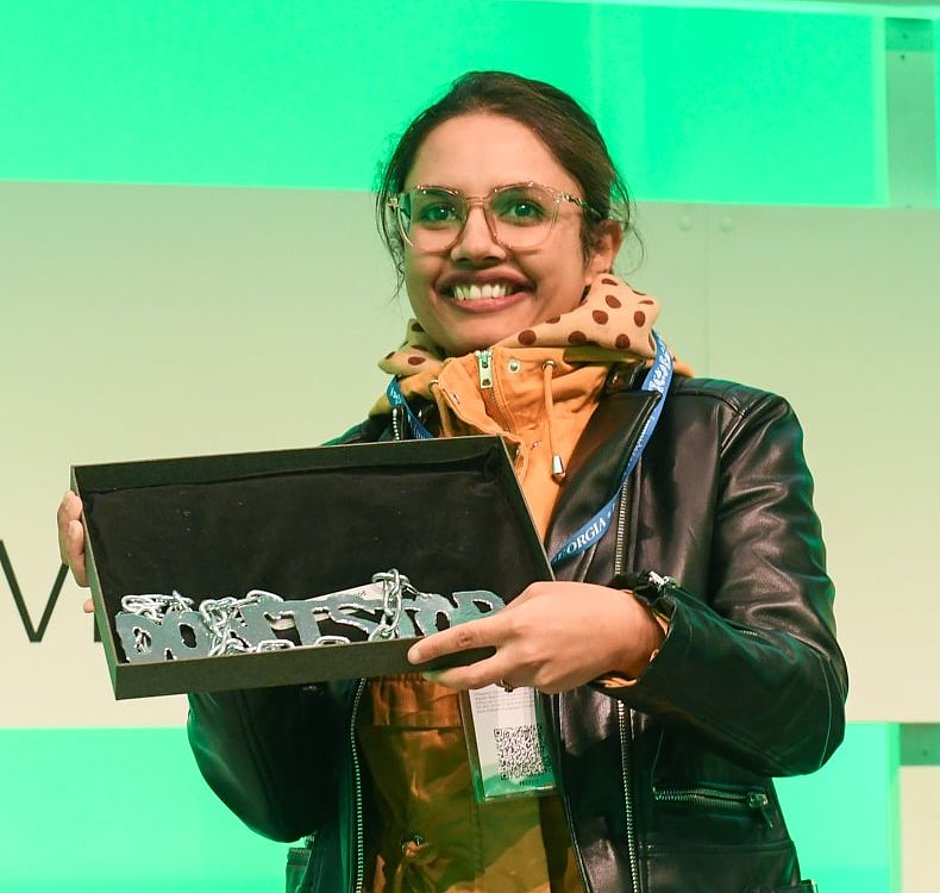GROWTH AND ECONOMIC POWER THROUGH WOMEN
IPD supports women’s economic participation
Often underestimated, women in developing and emerging countries play a central role in providing for and securing the income of their families. They work in agriculture, processing and sales. Yet it is mostly women who have little access to education, land ownership and credit. The economic potential of women remains unused. Equal participation in economic activities would not only strengthen women's rights, but also promote economic growth in these countries and thus benefit the entire population.
IPD supports many small and medium-sized enterprises in developing and emerging countries that were founded by women and are successfully managed by them. These female entrepreneurs use their position to enable other women and marginalised groups to access formal employment or to change existing structures that hinder equal economic and social participation for all.
IPD successfully connects women entrepreneurs with European buyers so that they can sell their products to Europe and increase their export turnover. This enables them to create new jobs and generate investment capital for their projects.
The following stories of women entrepreneurs show the opportunities that lie in women’s economic participation.
Empowerment through qualification
Hypericum plants of various colours grow on the "Fina Flora" farm. Their typical characteristic: small berries. Hypericum is in great demand as a cut flower.
More than 130 people work on the flower farm in the western highlands of Kenya's Great Rift Valley. 70 percent of the employees at "Fina Flora" are women. Most of the leadership roles – i.e. the team leader functions – are also held by women. They organise their daily work in a self-determined and democratic way in small units.
Winnie Mwaniki is the managing director of "Fina Flora" and spends a lot of time on her farm because close cooperation with her employees is of central importance to her. The woman entrepreneur places special emphasis on the further training of the team leaders and therefore trains them in the fields of management and agronomy, among others.
Interview with Winnie Muasya, Managing Director of "Fina Flora"
Do you place a special emphasis on the further development of your team, especially the team leaders? What motivates them?
Winnie Muasya: The positive development of our team is a huge motivation. It is great when I see how employees grow in a company, especially the women. Despite the social and economic barriers, they take responsibility and develop themselves and the company.
What is the focus of your mentoring?
Winnie Muasya: The European flower market has high demands and only together as a team can we meet them. We therefore try to impart the love of detail to the entire team, but also the fun of working in a dynamic environment.
As a medium-sized company, we have the great advantage that we are very flexible and adaptable and can therefore better meet the demands of the dynamic European market. We want to use this advantage together as a team.
In addition, the team leaders play a central role in our company, so their professional development is very important to us. Our aim here is to create in them a sense of responsibility for the company and a positive competitive spirit. And in the long term, of course, we want to guide the next generation to lead "Fina Flora" into a good future as a family business.
What do you see as the strengths and challenges of women in team leadership?
Winnie Muasya: Women are usually good managers and also workers in flower farming because they pay attention to details - that is crucial in cut flower production.
They often have a greater empathy and have an eye for the daily problems of the workers, because our work on the flower farm is very labour-intensive and exhausting. This benefits the motivation within the team.
In addition, female workers are more reliable - seen in the local cultural context - because they take their work and their self-earned income more seriously. But women bear double the responsibility - for their job and for their family.
It is women who take care of their family members and who are thus not always available at work. At the same time, my experience is that women are often more conservative and shy away from risks. We are working on that: Responsibility and success in the job create self-confidence and support women's empowerment.
Craft: Breadwinner of the family
“Savour Route” is a Sri Lankan company specialising in the production of high quality Ceylon cinnamon.
Senuri Gamage, the founder of “Savour Route” is sure that with the fine and aromatic Ceylon cinnamon, she and her team will bring a special product on the international market. For only a few people know that the production of Ceylon cinnamon in Sri Lanka is unique and that this combination of art and skill is passed down from generation to generation. A lot of experience and craftsmanship is needed. The Ceylon cinnamon sticks consist of several very finely cut inner barks of the cinnamon tree pushed into each other.
Enabling financial independence
The team of “Savour Route” – 90 percent of them women – are experts in processing the tree trunks and finely planning the inner bark. Many of the employees have been working in the cinnamon industry for a long time and have refined their techniques over the years.
As specialists in Ceylon cinnamon production, they are very well paid. Most of them, mentions Gamage, are the breadwinners of their families and also pay for their children's education. Others find a job at “Savour Route” to learn the trade and gain further qualifications.
For Gamage it is important to create job opportunities for women and thus support them in becoming more financially independent.
Against rural exodus: Regional networking
Strengthening the autonomy of marginalised groups
“EFFO Service Ivoire” is a family business that produces cashew oil. It works closely together with small plantations and village cooperatives that process the cashew nuts locally. Close networking with regional structures is part of the "EFFO" programme: „With our regional approach, we aim to solve the problem of rural exodus at grassroot level. We provide income-generating opportunities for women and people with disabilities to increase their autonomy and enable their integration into the local economic structure”, states Anne Cécile Konan from “EFFO”.
In doing so, “EFFO” places a special focus on the support of girls and women from the region. The permanent team includes women and people with disabilities. In addition, 30 women with disabilities market the products of "EFFO" at the local markets in the cities of Toumodi, Yamoussoukro and Abidjan.
Women as important players in agriculture
The IPD company “Fresh Approach” deliberately focuses on working with women. 60 percent of the farmers who grow for the company are women. “Fresh Approach” offers green beans – extra fine and fine –, snow peas as well as passion fruits. They have full control of the value chain from seed to the final product, ensuring high quality to their partners.
The role model for the founder Catherine Muya was her mother-in-law. “She came from Tanzania to Kenya, learned the native language and bought 20 hectares of land to start cultivating mangoes, oranges, passion fruits and local vegetables. As I watched her working her land and growing products for the local market and her family, she inspired me to get myself into agriculture.”
Improving livelihoods
Catherine Muya is convinced that women will also help to shape the future of agriculture.
"My experience is that women are open to change and new farming techiques. And they are willing to learn new skills because they have experienced first-hand the impact of climate change on yields," says Muya. "Furthermore, by focusing on women farmers we have seen the livelihoods of the families that we work with grow. The money that they earn from farming usually goes into table banking groups that allow them to purchase inputs, pay school fees and save a little for future projects."
Strengthening ecological sustainability
The company's name, "Tchakka Origins", already reflects what the Ethiopian company is all about. "Tchakka" means forest. The company, founded by Feven Tsehaye, uses the special resources from Ethiopia and finds new uses for indigenous plants.
"Tchakka Origins" works mainly with smallholder women farmers. They grow herbs, spices, flowers and oil seeds, which "Tchakka Origins" processes into natural ingredients for the food and cosmetics industry.
Transparency in the supply chain
The cultivation areas are located in Ethiopia's UNESCO-recognised biosphere reserves. Therefore, the company follows a conservation-oriented approach together with the smallholder women farmers. In addition, the quality of the goods is guaranteed thanks to a traceability system, which makes the supply chains transparent.
Fighting against human trafficking
Consolidating the right to self-determination
Since 2019, IPD works together with the tourism company “Sasane Sisterhood” from Nepal.
“Sasane Sisterhood” trains disadvantaged women, especially women who had been victims of violence and human trafficking, to become tourist guides. During the trainings, women acquire the skills of a trekking guide and learn to balance the needs of the local population with the requirements of the travelers. Training as tour guides contributes to the social, economic and cultural emancipation of women.
The offer of “Sasane Sisterhood” includes tours through Kathmandu, into the surrounding countryside with views of the Himalayas and into the Annapurna Mountains.
"Sasane Sisterhood" also works closely with rural communities to develop the tourism services. The aim is to establish sustainable businesses and to develop sources of income.
At ITB 2023, the company was awarded this year's "To Do Award Human Rights in Tourism" by the Studienkreis für Tourismus und Entwicklung e.V. for its engagement.
